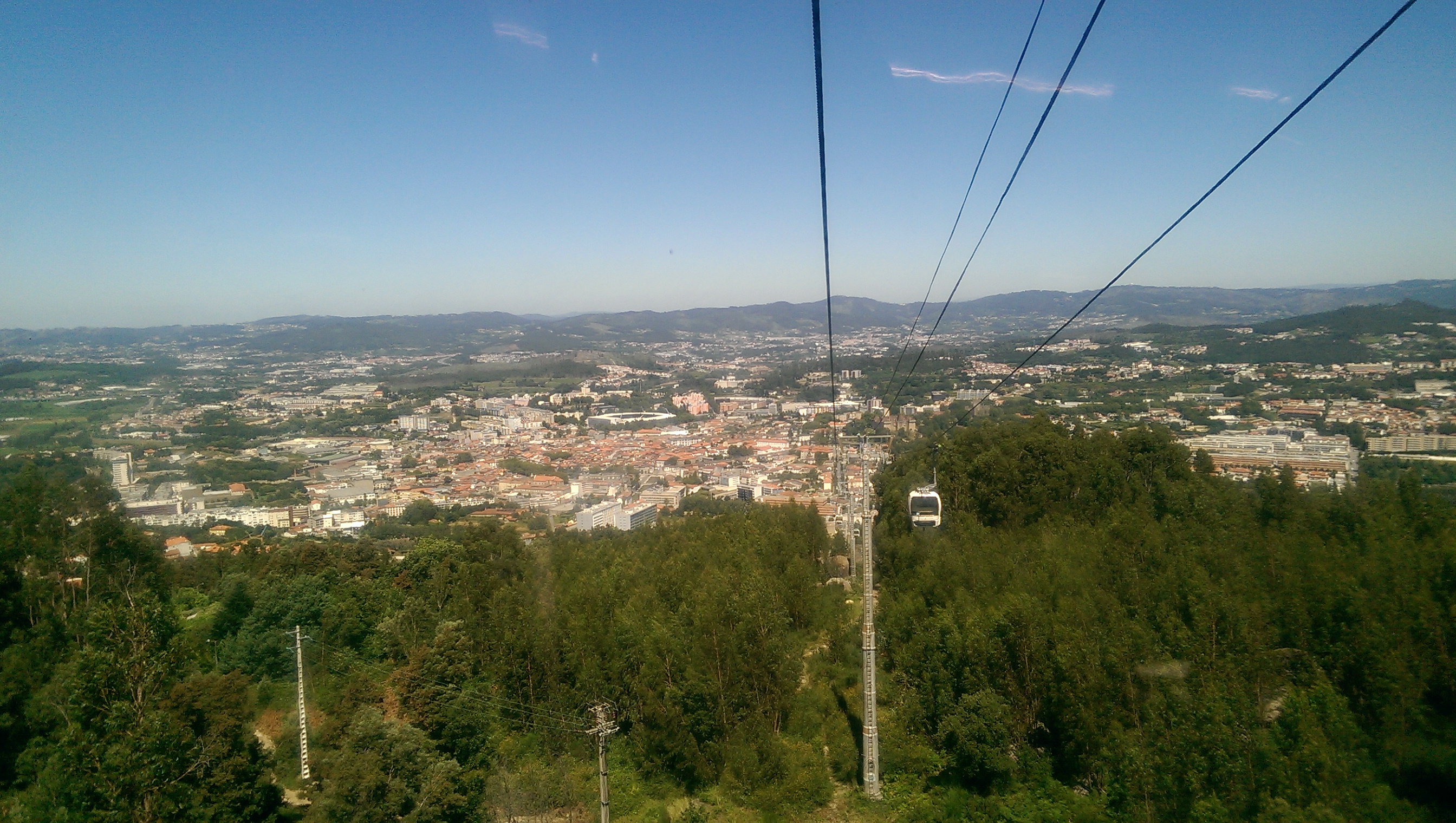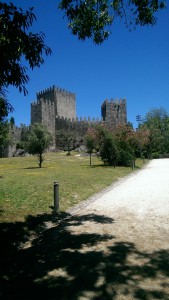
July 14, 2014, by Lucy
Extreme weather at the WCEH, Guimaraes, Portugal
World Congress on Environmental History (WCEH)
This week Georgina and I were lucky enough to be able to attend the 2nd World Congress on Environmental History (WCEH) in Guimaraes, Portugal. Although this trip wasn’t an official part of the Weather Extremes project, the conference included lots of talks on extreme weather events from a variety of time periods and places. It was really useful for us to learn more about current research in the field and to engage in questions and debates, as well as to make new connections with researchers.
I thought I would use this week’s blog to showcase a few of the research projects we learnt about in Portugal. This is just a small selection of the work that was presented, I’m sorry that we weren’t able to hear it all!
Current work on extreme weather
Towards a history of pre-modern weather
Kathleen Pribyl detailed William Merle’s weather diary which covers the period 1337-1344. Kathleen showed how Merle’s diary contains all types of weather phenomena and described how it is possible to compare Merle’s diary with other sources to assess accuracy. She has been able to find evidence of the St Mary Magdalene flood of 1342 and of a series of wind storms of 1343. Kathleen also explored Merle’s possible motivations for keeping such a record – a theme that we’re thinking about for the weather observers we encounter in the weather extremes project.
Ziga Zwitter drew our attention to the weather observations of the Bishop of Ljubljana – the Bishop recorded daily weather observations for the 12 days between Christmas and Epiphany and then used these to predict the weather for the forthcoming year – from discussions I understand that this practice was fairly widespread throughout Europe – does anyone know of any examples from the UK?
Antonio Lopez presented some material from the KlimHist project. The talk focussed on the process of extracting the meteorological data from Franzini’s (1779-1861) documentary record, mainly centred on the city of Lisbon. Like many of the observers that we’ve already come across in the UK, Franzini also commented on health and disease, and interestingly he also developed a wind scale (similar to that published by Beaufort whom he may have known) drawing on his personal experience of wind storms. The KlimHist team are in the process of putting all of the Franzini data (over 3,000 records) into what will become a publicly accessible database of documentary sources on past weather in Portugal. It will be really interesting to see how the database develops and to compare it with TEMPEST (our project database).
Reconstructing the climate in South Africa
In this session Claire Kelso, Ravanya Naidoo and Dave Nash all documented their own efforts to reconstruct the climate of South Africa in different periods. Claire highlighted the importance of narratives and of inter-cultural climate memory on the Highveld, a region known for its thunderstorms. Ravanya drew on material from the Jan van Riebeck diaries to produce a 10-year record of weather at the Cape. Dave detailed a project which has sought to explore rainfall variability in former Natal and Zululand, looking at the impacts of El Nino. He highlighted the potential of newspapers in climate reconstructions – having extracted thousands of weather and climate references from the Natal Witness into the project database.
The socio-political leverage of extreme weather events in late medieval Europe
In this session Martin Bauch explored the harsh meteorological conditions of 14th century Italy using material from chronicles. His presentation illustrated the interconnections between climatic, political and social stress and the potential for one to hide evidence of the other from the documentary record. Thomas Labbe’s paper explored how extreme weather events of the early 14th century were perceived by different European authors, and Linnea Rowlatt drew on material from sermons to talk about religious perceptions of nature and the human search for explantation.
Disaster and risk
Adam Sundberg presented a fascinating account of nature induced disasters in the Dutch Republic, highlighting the late 17th and early 18th centuries as a period of disaster in the Netherlands (including pestilence, frosts, windstorms, agricultural pests, flood, cattle plague and an epidemic of shipworm!) Adam recounted narratives of decline, connections between different disaster types, and, like Claire, explored the role of cultural memory – whether that be presence or absence of similar events in history. Andreas Dix looked at the history of torrent control structures in the Alps, reading the engineering structures to get a sense of how the risk was perceived. Alexandra Bekasova drew our attention to the role of insurance in disaster and risk, using transportation companies in Russia as a case study.
Hunting and ecology
Finally, Robert Hearn’s paper on the geographies of wild boar in north west Italy linked the extreme weather of the 1963 winter to the reintroduction of the wild boar to the Liguria region – the role of extreme weather in the movements of animals and people is definitely something for us to explore further!
Any errors in the above summary are entirely my own – please do let me know if you know that anything is incorrect.
Share your thoughts…
As you can see from the photos, Guimaraes is a lovely place, and we had wall to wall sunshine for our stay. We hope to keep in touch with those researchers mentioned in the blog and others working on extreme weather as our own project develops.
You can find a full list of the presentations at WCEH on the Congress website: http://www.wceh2014.ecum.uminho.pt/
And look back through the twitter coverage using #wceh2014
Were you at WCEH2014? Please share your thoughts on extreme weather research below!



Sounds like a great conference Lucy. Beautiful location, lots of interesting talks and networking opportunities aplenty!
Great summary of some of the sessions that we were able to catch. It was a very enjoyable conference and the venue wasn’t bad either (!) We would love to hear from some of the people mentioned above and perhaps liaise on some of the themes that are common to their work and ours.
If anyone missed the WCEH and would like to listed to the session Georgina and I took part in (Recording, visualising and disseminating cultural memories of extreme weather), you can do so here: http://greengambit.blogspot.co.uk/2014/07/recording-visualising-and-disseminating.html
Thanks again to Alex Hall for organising!